Physical
Uncover the secrets of the universe.
Our drive to understand the physical phenomena governing existence has unearthed colossal discoveries - from the cataclysmic collision that birthed our universe, to the interaction of matter and energy - life, the universe and everything.
So what’s next - harnessing dark matter? Geo-secrets at the Earth’s core? Be part of the discovery.
Where will physical sciences take you?
A
Astrophysicist
Astrophysics is one of the most exciting fields in science, raising huge questions about the very nature of the universe.
How do wormholes form? What is dark matter and energy made from? Does a multiverse exist? Is time travel possible? What’s inside a black hole?
Aerospace scientist
Aerospace scientists work in industry and government laboratories on topics related to aerospace and development.
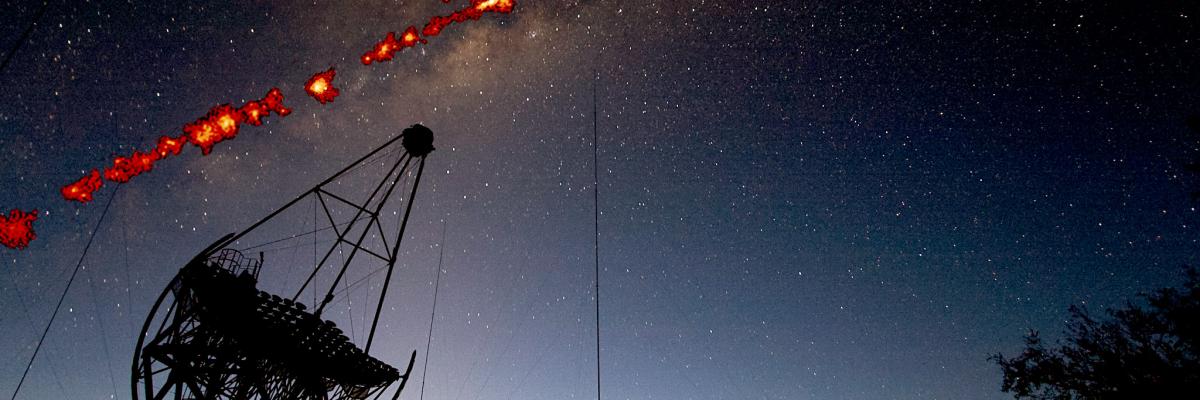
B
Biophysicist
Where biology and physics meet to help us understand the world around us. You might research how changes in the DNA of healthy cells trigger their transformation into cancer cells or develop computer modelling methods to understand how various diseases progress.
In fact, the 2018 Nobel Prize in Physics was awarded to a biophysicist whose method of using light to capture and manipulate tiny objects has changed the way we’re able to study microscopic life.
Business development manager
Mix business know-how with scientific inquiry to help develop, manufacture or market products which require specific discipline knowledge due to their complex and innovative nature.
Think food safety, medicines and medical testing equipment or perhaps even precision agriculture.
Banker
Major financial institutions in Australia and around the globe require graduates with varied backgrounds, not just accounting or finance.
The unique knowledge developed in areas like agriculture and physics can provide useful insight when analysing and solving financial problems.
C
Computer scientist
Apply your scientific knowledge when designing computer-based solutions that address information management and processing problems in space, defence, telecommunications or business data processing and analysis.
Climate & ecosystem modeller
Design, develop, implement, test, maintain or exploit climate and ecosystem models.
You might work with meteorological services, universities or international research laboratories to help understand and predict climate change.
Communicator or teacher
With scientific knowledge and understanding in such incredible demand worldwide, one of your most rewarding career paths could be to ‘turn the scientific light on’ for others.
You could engage the public as a science educator or journalist. You might develop a ‘citizen science’ app. Or maybe you’ll argue for science-backed change in a cinema-release documentary.
D
Defence industry scientist
Work in the defence sector performing lab experiments, researching global trends and developments in your field of expertise, engage in modelling and simulation exercises and provide recommendations to senior management on research and development.
Data scientist
Data scientists have already changed our lives—from optimising Internet searches to speeding cancer research and informing corporations’ financial decision-making.
Tomorrow you could build deep learning pipelines to guide autonomous air taxis, precisely match manufacturers’ supply to fluctuating demand or continuously enhance farms’ productivity based on real-time data feeds.
E
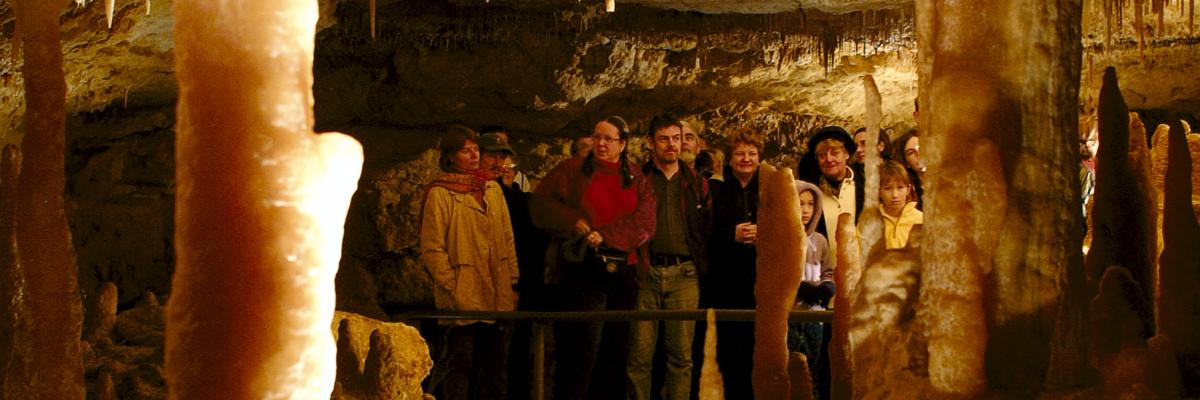
Ecotour operator
If you love being outdoors and want everyone else to see what you see in nature - wildlife, geology, cultural history - this is your chance to encourage travellers from near and far to tread more lightly on the earth.
The demand is growing and ecotourism businesses are innovating for low impact experiences which promote and support the local environment.
Entrepreneur
If Elon Musk can do it, so can you. Entrepreneurial scientists can blaze trails in any field.
You could develop and market anything from state-of-the-art space-travel technology and life-changing pharmaceuticals, to disease-preventing pet care products, new and sustainable food products, and waste-converting energy delivery.
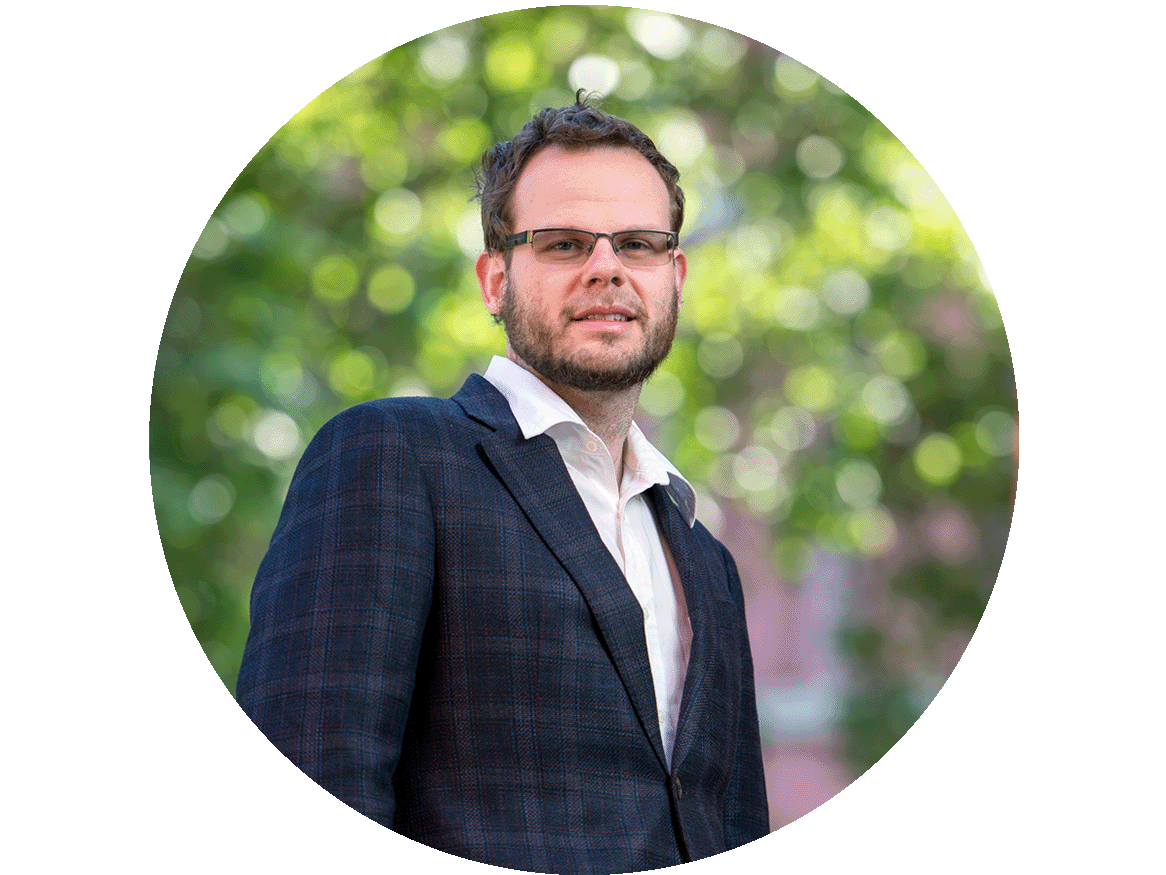
From student to entrepreneur
Dr Jonathan Hall - Presagen / Life Whisperer
“The University was a place where I could find like-minded people who loved the things I wanted to learn about. Because of that, I have the skills and mindset and patience to tackle many problems in science or industry, and create my own jobs and business opportunities in society.” - Graduate of the BSc (Optics & Photonics) / BSc Honours (Mathematical Physics)
F
Food physicist
The multidisciplinary mix of physics and food might not seem an obvious match, but physicists are working across the food industry, from understanding the physics at work when eating lollies to developing new mass-manufacturing technology.
You might develop new processes for preserving food or ways to manufacture food with less waste of raw materials, energy and water.
Financial analyst
Financial data is one of the most complex and changing data sets available. Large financial organisations employ analysts to interpret and predict, so that decisions on future actions can be based on solid evidence.
G
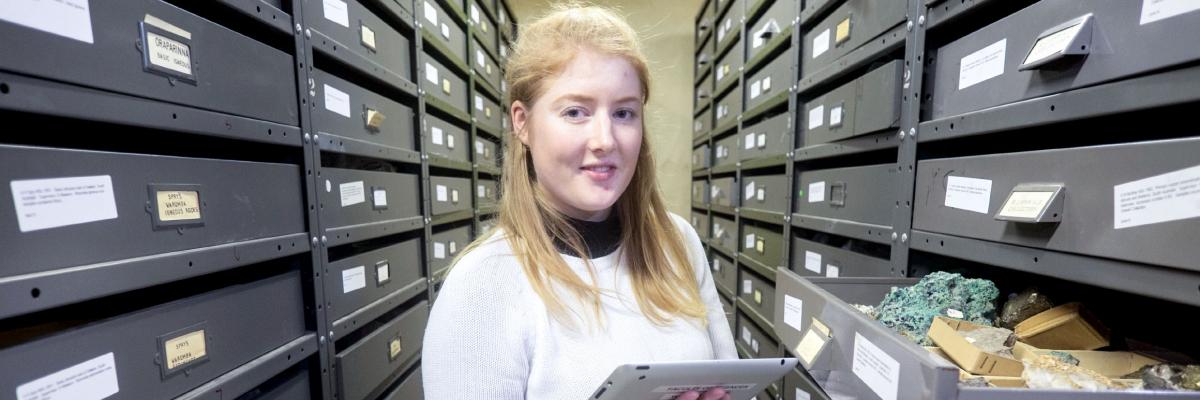
Geologist
As an expert in what the Earth is made of and how it was formed you can choose to specialise in many different areas, ranging from consulting to mining companies, predicting earthquakes or preventing soil erosion.
You might even look skywards and become a space exploration geologist who unravels the geologic history of mars.
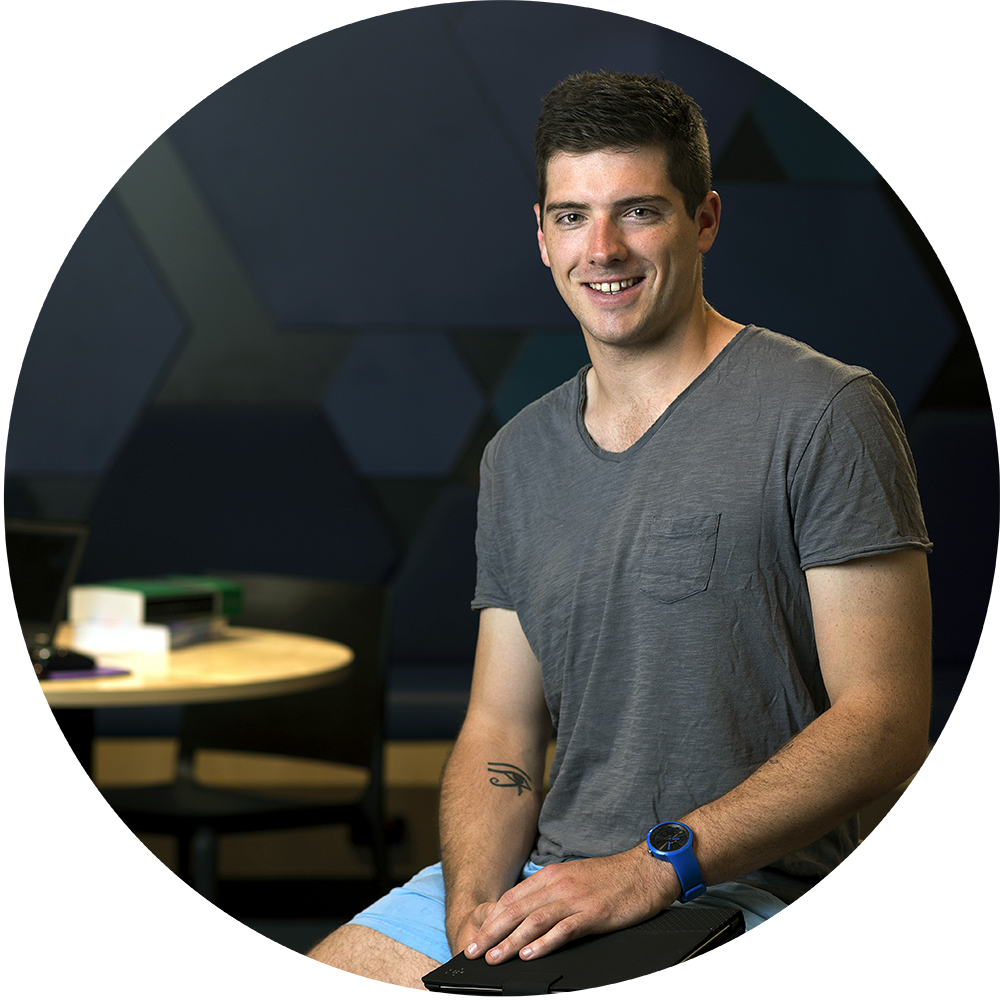
From student to geologist
Jack Maughan - Heathgate Resources Pty Ltd
"Uni to me has been the perfect transition from school into a working career. I’ve learnt how to work in teams and individually in environments not necessarily provided throughout my high school experiences." - Graduate of the BSc (geology major)
Geophysicist
Geophysicists are the people who know why there might be gas in one part of the sea over another or why there is an oil deposit in this geological structure compared to that one.
You might monitor the earth’s movement with minute precision to help minimise the impact of earthquakes, or discover new subglacial lakes beneath ice caps.
Geoscientist
Right now, geoscientists search for deposits, drill for diamonds and classify geological discoveries.
The field’s brightest are beginning to virtually explore unmapped terrains with 3D modelling, repair mining’s environmental impacts and even attempt the interruption of tsunamis and earthquakes.
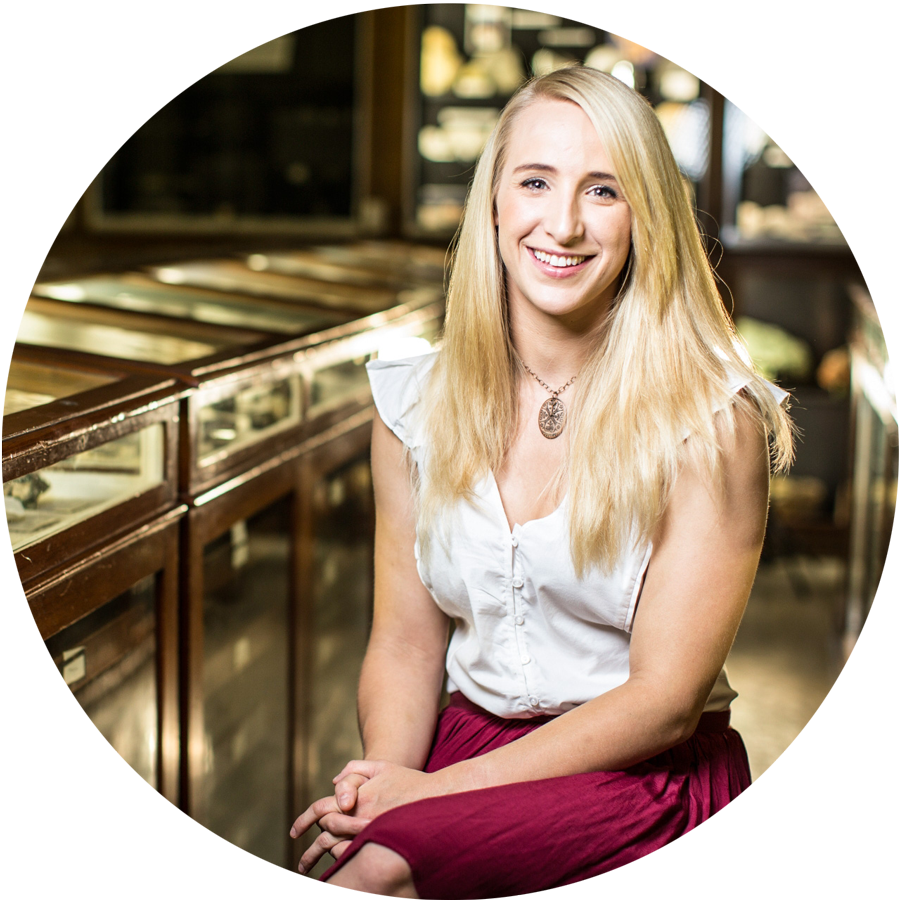
From student to geologist
Bonnie Henderson - Woodside Energy Pty Ltd
“My time at the University of Adelaide has been extraordinary, challenging and life-changing. I love the social interaction and field-work component of studying earth sciences. During my undergraduate and PhD studies I have travelled around Australia and the world. I am now a part of a global community of geoscientists.” - Graduate of the BSc Advanced (geology major)
H
Hydrogeologist
Evaluate and manage the quality, quantity, reliability and sustainability of water resources.
You will likely work with a mining, petroleum, engineering or environmental consultancy firm, government department or geological survey organisation.
Hydrologist
Examine the physical properties of water, including its circulation, distribution and physical properties, both above and below the surface of the Earth.
Use your scientific expertise to advise engineers, developers and governing bodies on specific projects, policies or developments.
I
Innovation manager
Innovation is a key driver of scientific discovery. Big changes are underway in industries like medicine, agriculture and pharmaceuticals and they will accelerate in years to come.
As an innovation manager you can apply your scientific skills in any number of ways, from clearing the ocean of plastics, to pioneering a new biofuel or helping to launch new technology into space.
L
Laser & photonics scientist
Photonic devices have broad applications not only in IT, but in computation, sensing, fundamental physics, medicine and biology.
You will work on the design, production, and use of laser and fibre optics technology, helping to progress the information revolution.
Laboratory technician or manager
If you love working in a lab, this job is a great option.
You will assist scientists by collecting and preparing samples, carrying out experiments and recording and presenting results for critical analysis. Once you gain experience you might manage a small team of people to ensure the smooth running of the laboratory.
M
Meteorologist
Understand, predict and monitor regional, continental and global weather or set your sights beyond the stratosphere on space weather looking at geomagnetic storms, solar winds and ionospheric disturbances...
Medical physicist
Many of the greatest inventions in modern medicine were pioneered by physicists.
Propel healthcare forward by developing revolutionary technology using particle accelerators to treat cancer, or highly sensitive imaging to see inside living tissue to better disease diagnosis.
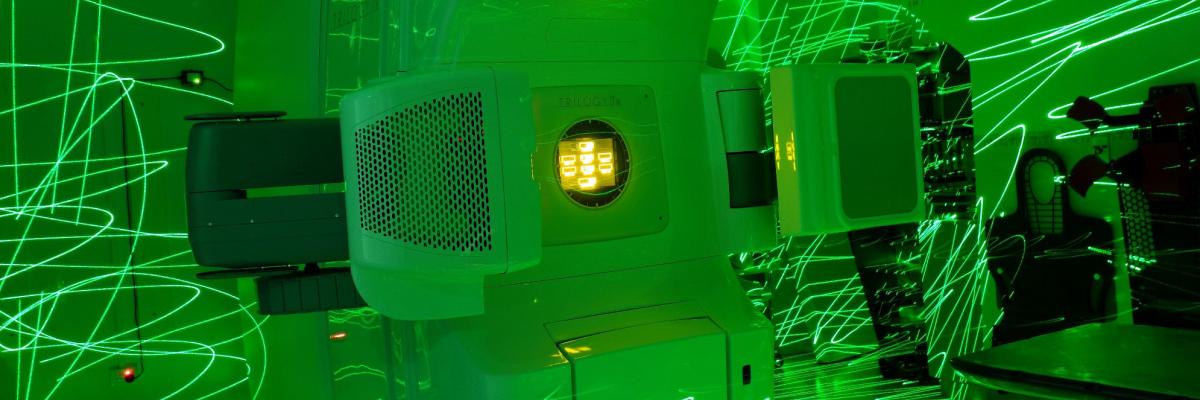
P
Policy officer
Scientists are under increasing pressure to create world-changing interventions; from gene editing to driverless cars, science needs policy officers to ask questions about the social and political implications of these innovations.
As a policy officer you might use your technical knowledge to ensure new environmental legislation is based in sound scientific evidence.
Palaeontologist
Predict the future as you unearth the past through discovering, studying and recording fossils of extinct plants and animals.
Use this information to determine the origin, age, and composition of fossils to develop a narrative about the past, which helps explain geological processes like fossilisation, historical events like ice ages, and scientific theories like evolution.
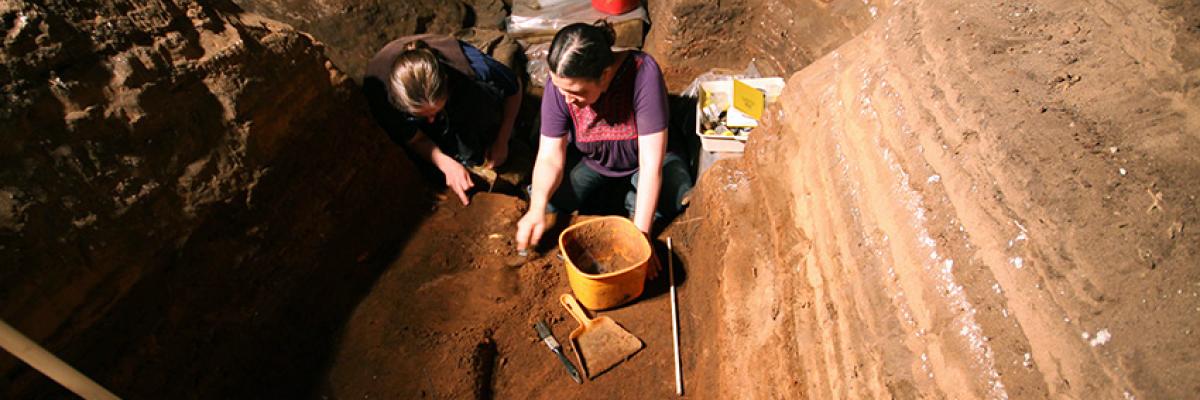
Physicist
Explore how energy and matter interact. Most physicists spend their time conducting research for hospitals, private industry research centres or universities.
You may also be involved in the design of scientific equipment such as particle accelerators and lasers.
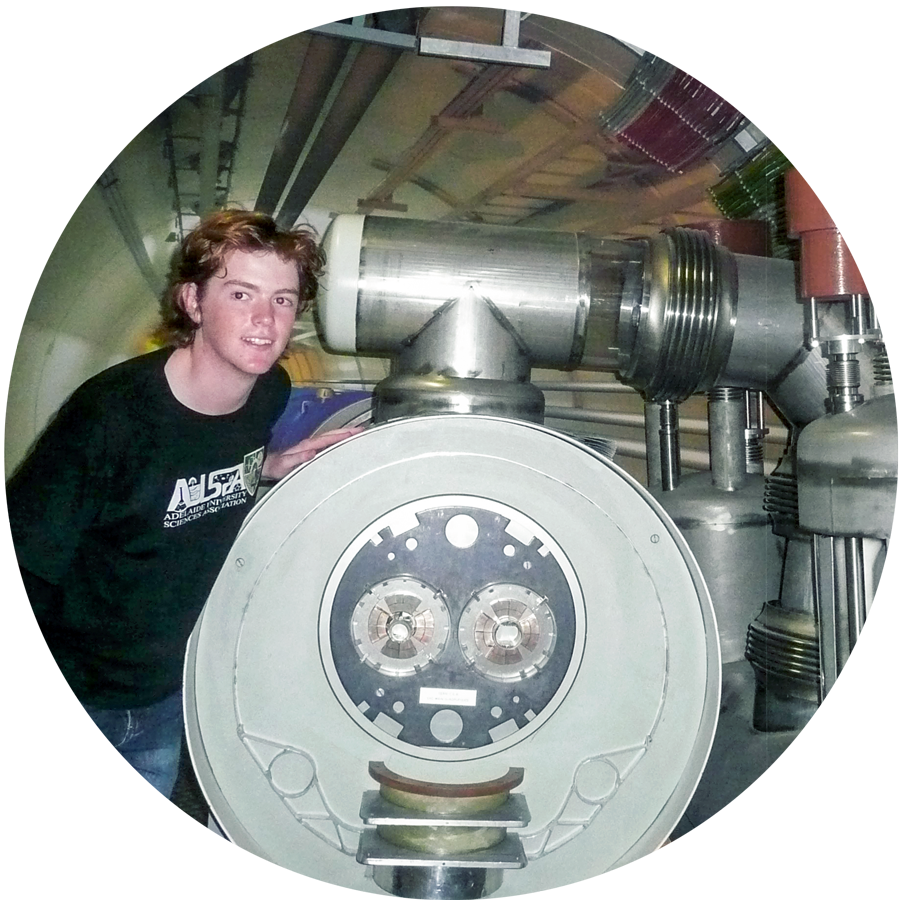
From student to high-energy physicist
Ben Geytenbeek - University of Cambridge
"Through experiments like the Large Hadron Collider and astrophysical and cosmological observations, we can probe for new physics that will provide deeper understanding of our universe and drive technological innovation for generations to come.
"The Gates Cambridge scholarship enabled me to be at the forefront of groundbreaking research such that I can make a valuable contribution to the knowledge of humankind." - Graduate of the BSc Advanced (physics major)
R
Researcher
Australia has numerous federal scientific research organisations, such as the: CSIRO; Defence Science and Technology Group; Australian Antarctic Division; and Australian Institute of Marine Science. South Australia has many too. You’ll do important work and regularly collaborate with universities and industry.
Research & development manager
What’s your scientific pleasure - astrophysics? How does research with a company like SpaceX sound? Or one of Australia’s growing number of space start-ups?
If biotech’s more your thing, how about R&D for a giant like Samsung Biologics? Perhaps you’d like to consult to organisations like Adelaide’s Futuris Corp on future farming? Research opportunities are everywhere.
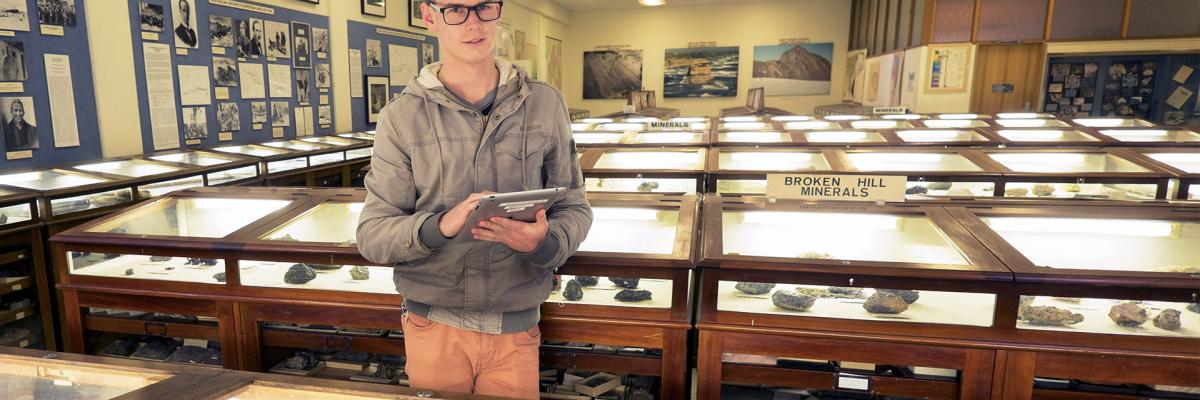
S
Seismologist
Earth scientists specialise in geophysics and study the genesis and propagation of seismic waves in geological materials.
These materials can range from small lab samples to the entire Earth, from its surface to core.
Soil scientist
Become an expert on the Earth’s surface. Understand soil formation, classification and mapping; investigate the physical, chemical, biological and fertility properties of soils; and learn how to properly use and manage soils.
Systems analyst
Design computer information systems, modify and optimise systems and advise clients on ways to explain existing systems.
Statistician
Engage in the application of statistical theory and methods to collect, organise, interpret and summarise numerical data to provide usable information.
This could include analysing census data or information sourced from any number of specialised areas.
Specialist
Countless thriving businesses owe their success, in large part, to staff with scientific expertise.
Picture yourself leading R&D for Virgin Galactic, managing environmental sustainability for an ecotourism developer, or overseeing cybersecurity for a major defence contractor.
U
University academic
Research universities are absolute hives of scientific discovery. There are over 1,000 in the world - and Adelaide Uni is one of them.
Academics generally combine research, teaching and administrative duties and regularly collaborate with leading companies and research organisations all over the globe.
What will you study?
- Bachelor of Applied Data Analytics - NEW
- Bachelor of Science
- Bachelor of Science (Advanced)
- Bachelor of Science (High Performance Computational Physics) (Honours)
- Bachelor of Science (Mineral Geoscience)
- Bachelor of Science (Space Sc & Astrophysics)
- Bachelor of Science and Entrepreneurship
- Bachelor of Teaching (Middle) with Bachelor of Science
- Bachelor of Teaching (Secondary) with Bachelor of Science
- Honours Degree of Bachelor of Science
- Honours Degree of Bachelor of Science - NEW
- Honours Degree of Bachelor of Science (Advanced) - NEW
- Honours Degree of Bachelor of Science (Mineral Geoscience) - NEW
